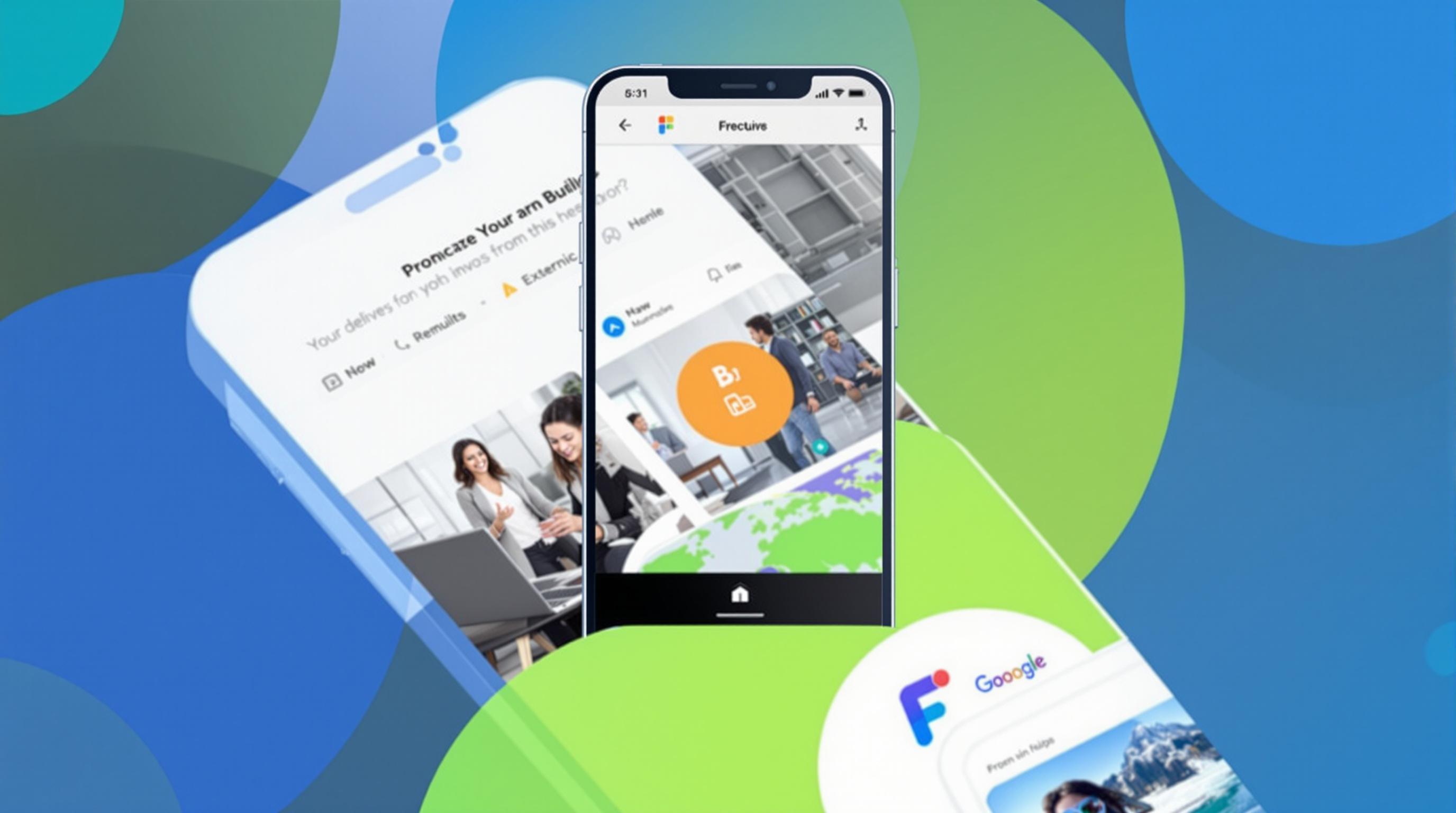Related Articles
- 7 Game-Changing Student Budget Apps Released Since 2019 That Slash College Living Expenses
- The Silent Toll of Campus Health Services: Unpacking the Overlooked Expenses Students Face Beyond Tuition
- Examining Virtual Tour Accessibility Challenges for Neurodiverse and Disabled Students in Higher Education
- The Role of Virtual Campus Visits in Shaping Student Identity and Community Belonging from Afar
- How Procrastination Patterns Shape College Application Outcomes: Analyzing the Role of Timing in Student Decisions
- How Seasonal Patterns Influence Decision-Making Mindsets During Critical College Application Phases
9 Unconventional Networking Strategies That College Interns Can Use to Build Lifelong Professional Connections
9 Unconventional Networking Strategies That College Interns Can Use to Build Lifelong Professional Connections
9 Unconventional Networking Strategies That College Interns Can Use to Build Lifelong Professional Connections
Networking is a critical component for career development, especially for college interns eager to establish themselves in competitive professional environments. Traditional networking methods—like attending career fairs or LinkedIn outreach—serve their purpose, but exploring unconventional approaches can set interns apart.
This article delves into nine unique strategies that college interns can incorporate to forge meaningful, lasting professional connections. These methods are designed to boost visibility, demonstrate creativity, and foster genuine relationships.
By embracing these unconventional tactics, interns can unlock opportunities and build networks that endure beyond graduation and their internship tenure.
1. Volunteer for Cross-Department Projects
Rather than limiting exposure to just one department, interns should actively seek out cross-department initiatives. Volunteering for projects that involve multiple teams enables diverse interactions and broadens one’s professional network organically.
This strategy signals initiative and versatility, qualities that managers and peers respect. Interns get the chance to showcase their skills while learning how various parts of an organization collaborate.
For example, a marketing intern participating in a product development brainstorming session not only grows their network but also gains a holistic understanding of the company's offerings and challenges.
2. Organize Informal Meetup Sessions
Rather than waiting for formal networking events, interns can take the lead by organizing low-pressure gatherings such as coffee meetups or lunch groups. These events create comfortable environments for building rapport.
By hosting these sessions, interns show leadership and initiative, which helps them stand out. Inviting colleagues or other interns widens their network and cultivates friendships along with professional contacts.
This strategy also leverages small group settings where deeper conversations and trust can develop, making connections more meaningful and long-lasting.
3. Use Social Media Creatively to Showcase Your Internship Journey
Traditional social media profiles often emphasize static resumes, but interns can engage others by sharing dynamic content about their experiences. Posting thoughtful reflections, project updates, or behind-the-scenes glimpses creates engaging narratives.
Platforms like LinkedIn and Twitter serve as excellent venues for storytelling and demonstrating enthusiasm. Tagging coworkers or company pages can increase visibility and invite interaction.
Studies have shown that personal branding through thoughtful content curation increases perceived authenticity, a key component for building trust in digital professional networks (Forbes, 2021).
4. Seek Out Mentors Beyond Direct Supervisors
While immediate managers are important contacts, expanding mentorship to professionals outside one’s department or hierarchy can offer fresh perspectives and diverse guidance. Mentors provide advice on navigating industry nuances and career paths.
Interns can identify potential mentors by attending talks, joining student-professional groups, or simply reaching out to inspire connections. Offering value in return, such as supporting their projects or sharing insights, fosters mutual respect.
According to research published in the Journal of Vocational Behavior (2019), mentor diversity correlates with higher career success and satisfaction, highlighting the importance of broad mentorship nets.
5. Participate in Industry-Specific Online Communities
Forums, Slack channels, and specialized social networks linked to an intern’s field can be great for connecting with professionals worldwide. Active participation in discussions demonstrates knowledge, curiosity, and communication skills.
Interns should contribute thoughtfully, ask questions, and share relevant resources. This form of networking increases visibility and can lead to invitations for collaboration or job opportunities down the line.
For example, technology interns might join GitHub communities or coding forums where they can share projects and obtain feedback.
6. Attend Workshops and Think Tanks Outside Your Immediate Field
Expanding horizons by attending sessions outside of the core internship discipline encourages innovative thinking and new connections. Conferences on adjacent industries or interdisciplinary topics can introduce interns to unconventional ideas and people.
This approach not only enriches knowledge but signals intellectual curiosity and adaptability to potential contacts. It also opens doors to hybrid career paths which are increasingly valuable in evolving job markets.
For instance, a finance intern participating in a tech innovation workshop might meet entrepreneurs who could become future collaborators or employers.
7. Create a Personal Newsletter Featuring Industry Insights
Curating and distributing a newsletter about internship experiences or industry trends distinguishes interns as thought leaders. Sharing original content or curated news shows commitment and passion, attracting peers and professionals alike.
Using simple tools like Mailchimp, interns can cultivate a subscriber base of classmates, mentors, and professionals. This ongoing communication deepens relationships over time.
The newsletter format also helps interns maintain a digital footprint and provides a portfolio piece showcasing communication skills.
8. Leverage Alumni Networks Creatively
Many universities offer access to extensive alumni directories. Interns can use these resources not just to connect broadly but also to organize alumni panels, joint study groups, or theme-based discussions.
Engaging with alumni in more interactive, personalized ways helps interns build strong, trust-based connections. These gatherings serve as valuable platforms for exchanging advice and expanding professional circles.
Alumni are often eager to support students and emerging professionals, making this strategy mutually beneficial and highly effective.
9. Document and Share Your Learning Milestones Publicly
Keeping a public record—via blogging, video diaries, or social media posts—of skills acquired and challenges overcome during the internship can captivate audiences and signal growth potential.
Such transparency attracts feedback and encouragement from professionals, opening dialogue that can evolve into mentoring relationships or job leads.
This method demonstrates a growth mindset, an asset highly prized according to a Harvard Business Review study (2020), thus enhancing employability in the eyes of network contacts.
Conclusion
Building professional connections as a college intern requires creativity and proactive effort beyond traditional strategies. By volunteering for diverse projects, hosting meetups, utilizing social media innovatively, and pursuing broad mentorships, interns gain a competitive advantage.
Engaging with online industry communities, attending interdisciplinary events, launching newsletters, leveraging alumni, and publicly sharing growth journeys further cement lasting bonds. These nine unconventional strategies empower interns to transform fleeting internship moments into lifelong professional relationships.
Adopting these approaches equips college interns to thrive in an increasingly interconnected and dynamic workforce.




